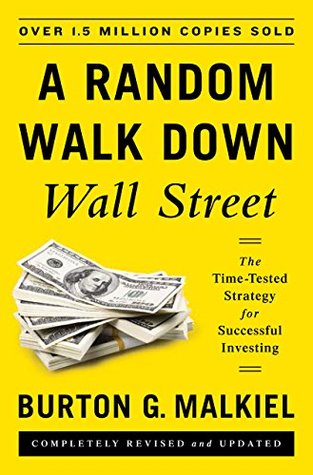More on this book
Community
Kindle Notes & Highlights
Read between
April 19 - July 7, 2018
Buy term insurance for protection and invest the difference yourself in a tax-deferred retirement plan.
My advice is to buy renewable term insurance; you can keep renewing your policy without the need for a physical examination.
Shop around for the best deal. There is considerable variation in insurance company rates.
Do not buy insurance from any company with an A.M. Best rating of less than A.
You can obtain A.M. Best’s ratings of insurance companies by calling 908-439-2200.
A somewhat more objective and critical rating is offered by Weiss Research, a consumer-supported company, which can be contacted at 800-291-8545. The Weiss website is at http://www.weissinc.com/.
I would avoid buying variable-annuity products, especially the high-cost products offered by insurance salespeople.
Remember the overarching rule for achieving financial security: keep it simple.
The only reason you should even consider a variable annuity is if you are super wealthy and have maxed out on all the other tax-deferred savings alternatives.
And even then you should purchase such an annuity directly from one of the low-cost providers...
This highlight has been truncated due to consecutive passage length restrictions.
As I’ve already pointed out, some ready assets are necessary for pending expenses, such as college tuition, possible emergencies, or even psychological support. Thus, you have a real dilemma. You know that if you keep your money in a savings bank and get, say, 2 percent interest in a year in which the inflation rate exceeds 2 percent, you will lose real purchasing power. In fact, the situation is even worse because the interest you get is subject to regular income taxes.
Money-market mutual funds often provide investors the best instrument for parking their cash reserves.
A reserve for any known future expenditure should be invested in a safe instrument whose maturity matches the date on which the funds will be needed.
Bank CDs are even safer than money funds, typically offer higher yields, and are an excellent medium for investors who can tie up their liquid funds for at least six months.
Bank CDs do have some disadvantages. They are not easily converted into cash, and penalties are usually imposed for early withdrawal.
Addresses and phone numbers are given for each listing, and you can call to confirm that the deposits are insured and learn what current rates of return are being offered.
The Internet banks generally post the highest CD rates available in the market.
Popularly known as T-bills, these are the safest financial instruments you can find and are widely treated as cash equivalents.
If you live in a state with high state income taxes, these funds can be very attractive on an after-tax basis.
You should call one of the mutual-fund companies listed in the Random Walker’s Address Book to find out whether they have a money fund that invests only in the securities of the state in which you pay taxes.
My advice is: Own your own home if you can possibly afford it.
If you want to move your portfolio toward terra firma, I strongly suggest you invest some of your assets in REITs.
Equally important, real estate is an excellent vehicle to provide the benefits of diversification described in chapter
REIT index funds
There is much about investing you cannot control. You can’t do anything about the ups and downs of the stock and bond markets. But you can control your investment costs. And you can organize your investments to minimize taxes. Controlling the things you can control should play a central role in developing a sensible investment strategy.
We all wish that we had a little genie who could reliably tell us to “buy low and sell high.” Systematic rebalancing is the closest analogue we have.


